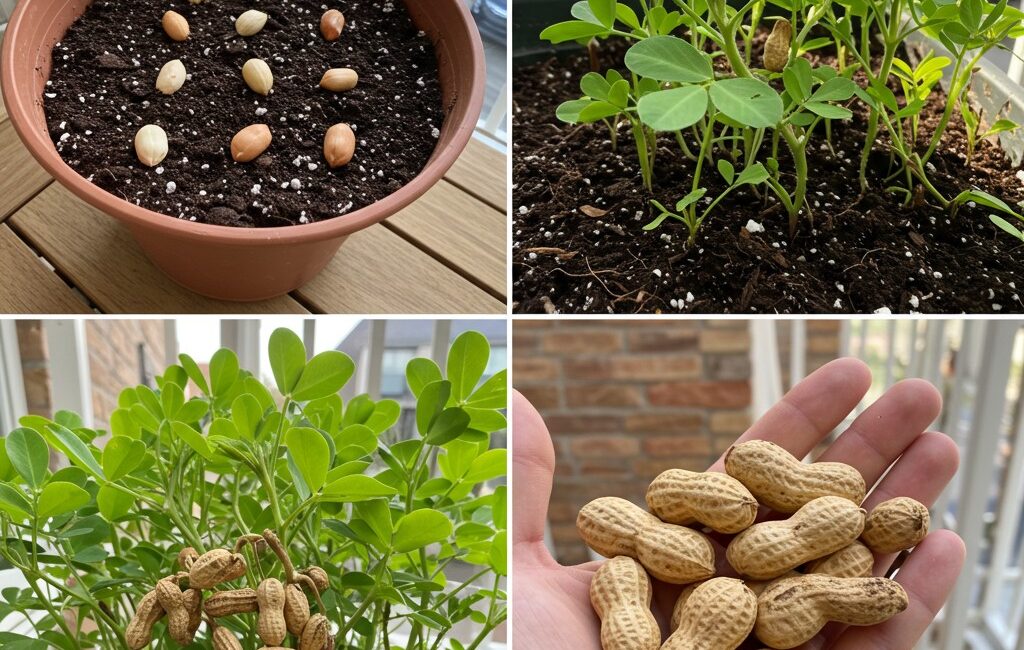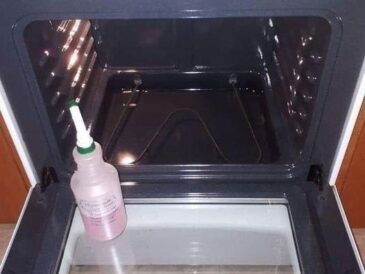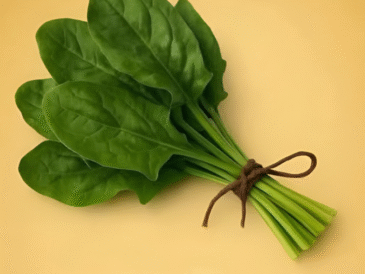3. Watering Practices
- Initial Watering: Keep soil moist but not soggy to support germination.
- Consistent Moisture: Water regularly, ensuring the soil remains moist, especially during flowering and pegging stages.
- Avoid Overwatering: Excess moisture can cause fungal diseases and root rot.
4. Sunlight Requirements
- Peanuts need full sun, at least 6-8 hours daily, to thrive and produce abundant pods.
- If sunlight is limited on your terrace, consider supplementing with grow lights.
5. Fertilization and Nutrient Management
Peanuts fix nitrogen in the soil but still require essential nutrients for optimal growth.
- Balanced Fertilizer: Use a balanced organic fertilizer with nitrogen, phosphorus, and potassium.
- Phosphorus and Potassium: Important for root development and pod formation.
- Frequency: Fertilize every 3-4 weeks during the growing season.
6. Supporting the Plants
- Peanut plants can spread horizontally; using small stakes or cages can help keep plants upright.
- Ensure adequate space to avoid overcrowding and promote air circulation.
7. Managing Pests and Diseases
Common pests include aphids, caterpillars, and mites. Diseases such as leaf spot and root rot can affect plants.
- Natural Pest Control: Use neem oil spray or insecticidal soap.
- Good Hygiene: Remove dead leaves and debris regularly.
- Adequate Spacing: Prevent fungal diseases by ensuring good airflow.
Specialized Techniques to Maximize Peanut Yield on the Terrace
Mulching
- Apply organic mulch such as straw or shredded leaves to conserve moisture, regulate soil temperature, and suppress weeds.
Soil Aeration
- Loosen the soil every few weeks gently to allow oxygen flow to roots and pegs.
Timely Harvesting
- Peanuts typically mature 120-150 days after planting.
- Harvest when leaves start turning yellow but before frost.
- To check readiness, gently dig near the base to see if pods have hardened.
Troubleshooting Common Problems in Terrace Peanut Cultivation
Poor Germination
- Cause: Old or damaged seeds, improper soil moisture.
- Solution: Use fresh seeds, maintain consistent moisture.
Yellowing Leaves
- Cause: Nutrient deficiency or overwatering.
- Solution: Adjust fertilization and watering practices.
Fungal Infections
- Cause: Overwatering or poor drainage.
- Solution: Improve drainage, reduce watering frequency, and use fungicide if necessary.
Low Pod Yield
- Cause: Insufficient sunlight, poor pollination, nutrient deficiency.
- Solution: Ensure full sun exposure, fertilize properly, and maintain plant health.
Harvesting and Post-Harvest Care
- Uproot plants carefully to avoid damaging pods.
- Shake off excess soil and cure plants by drying in a shaded, airy spot for 1-2 weeks.
- After drying, shells can be cracked open to extract peanuts.
- Store peanuts in a cool, dry place to prevent mold.
Health Benefits of Growing and Consuming Your Own Peanuts
- Peanuts are high in protein, healthy monounsaturated fats, fiber, and important minerals such as magnesium and phosphorus.
- They are beneficial for heart health, weight management, and blood sugar control.
- Homegrown peanuts are chemical-free and nutrient-rich.
Frequently Asked Questions (FAQs) About Terrace Peanut Gardening
Can peanuts grow well in containers?
Yes, with the right soil, container size, and care, peanuts thrive in containers, making terrace cultivation practical.
How much sunlight do peanut plants require?
At least 6-8 hours of direct sunlight daily is ideal.
Can I grow peanuts indoors?
It is challenging but possible with grow lights, warm temperatures, and humidity control.
How do I ensure my peanut plants produce many pods?
Provide adequate space, sunlight, nutrients, and proper watering. Avoid stress factors like pests and diseases.
Conclusion: Grow Peanuts on Your Terrace and Enjoy a Bountiful Harvest
Growing peanuts on a terrace is an exciting and rewarding experience, especially for beginners eager to produce fresh, organic nuts in limited space. By selecting the right variety, preparing soil and containers adequately, providing proper care, and using smart cultivation techniques, you can achieve high yields with many fruits.
Peanuts are not only delicious and nutritious but also bring satisfaction in growing your own food sustainably. Whether you want to snack on fresh peanuts, roast them, or use them in recipes, your terrace-grown peanuts will be a testament to your gardening success.
Start your peanut terrace garden today and reap the benefits of a high-yield, flourishing peanut crop!




